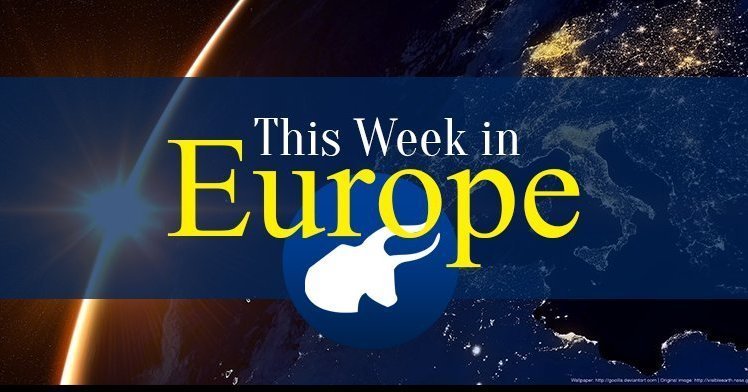EU leaders fail to agree on top jobs at Council
A meeting of the European Council this week failed to come to an agreement on which candidates should fill the positions of European Commission President, President of the European Council, President of the European Central Bank and High Representative for Foreign Affairs. The post of European Parliament President, though not a matter for the Council, is also taken into account. The need to create a balance across political groups, geographic distribution and gender has proved particularly challenging as political consensus has become harder to find. Though the European People’s Party came first in the European Parliament elections, their lead candidate for Commission President, Manfred Weber, is manifestly unpopular with both the other groups in the Parliament and with a number of national leaders. Finding a candidate for the Commission presidency in particular is not being helped by division within the European Parliament, where each group is so far only backing its respective lead candidate as they have failed to agree on a common position.
Boris Johnson still leads to be next UK Prime Minister
The UK Conservative Party’s leadership contest has now finished its first phase, with the votes among MPs cutting down the number of candidates to just two: Boris Johnson and current UK Foreign Minister Jeremy Hunt. As a committed Brexiteer and the face of the Vote Leave campaign, Johnson remains the favourite to win the leadership of the party. Hunt, though he has since converted fully to Brexit, backed Remain in 2016 and his approach to Brexit is seen as too close to Theresa May’s to allow him to really win over many supporters within the Conservative Party membership. A recent poll estimated that Conservative members would prefer to see Brexit go ahead even if it meant Scotland leaving the UK (63% to 29%), Northern Ireland leaving the UK (59% to 28%) or even the end of the party (54% to 36%).
Poland’s conservatives look to clamp down on foreign-owned media
The Polish governing party, Law and Justice, has set out plans to ‘repolonise’ the media in the country. Significant parts of Polish media are owned by German and American companies and the government has often accused these groups, who tend to be critical of the government, of representing foreign interests. Journalists with these groups have criticised the government idea and argue it is an attempt to clamp down on freedom of speech and restrict the power of the media to hold the government to account, potentially heading to a situation like Hungary where independent media has been all but wiped out. The plan is provoking concern not just with the EU but also in Washington, in spite of Law and Justice’s attempts to build close relationships with the Trump administration.
Trump attacks competitive euro
This week President of the European Central Bank Mario Draghi, gave a speech where he confirmed that the ECB would cut interest rates or buy eurozone government debt if economic growth became too weak. While completely within the remit of the ECB and an expected position from Draghi, the effect on the markets was to slightly drop the value of the euro against the dollar. Donald Trump took to Twitter to attack this situation, effectively arguing that the ECB was unfairly manipulating the currency markets in order to make the euro more competitive. It is not the first time that Trump has attacked Europe for its trade position relative to the United States, just recently describing the euro as ‘devalued’ in response to a Bloomberg article on overtourism in Europe. The tone of Trump’s criticism of European trade and monetary policy is heavily reminiscent of the US President’s approach to China, even though European policy is very different and much more market-driven than its Chinese counterpart.
Russians charged for the downing of Malaysia Airlines flight MH17
On Wednesday, prosecutors in the Netherlands announced that they will be charging four suspects, including three Russian nationals, for the downing of Malaysia Airlines flight MH17 in 2014. The murder charges come as the men are suspected of using a missile launcher to murder the 298 on board of the plane, plus its crew, over eastern Ukraine. The flight was en route from Amsterdam to Kuala Lumpur when it was shut down, giving jurisdiction to a Dutch investigation team. By their names Igor Girkin, Sergey Dubinskiy and Oleg Pulatov, and Ukrainian national Leonid Kharchenko, the four men now have arrest warrants out and are thought to be currently residing in Russia, the latter in eastern Ukraine. Moreover, the Russians were part of the Russian intelligence services and are thought to have armed the separatists in eastern Ukraine with the Buk missiles that brought the plane down.
ECJ blocks Germany’s autobahn tax
This week, the European Court of Justice responded to a complaint filed by Austria regarding Germany’s plan to enact a tax cut and leave foreigners to pay the highway taxes alone, thus breaking EU rules. Germany, along with a few other EU countries, does not charge motorists for using highways, maintaining them through taxes. But Germans sometimes complain about foreigners using the autobahns for free - since they don’t pay taxes in Germany - and so the CSU, ally to Merkel’s Christian Democratic Union, drafted a new plan to tax foreigners as well, despite the opposition of the Chancellor. The plan would have had German-registered cars to be charged €130 a year, with the cost deducted from road taxes. Non-German drivers would have been able to buy vignettes for shorter periods, but wouldn’t get a rebate. This would be indirect discrimination on grounds of nationality, said the ECJ, not to mention a breach in the freedom of movement.
Berlin freezes rents for 1.5 million apartments
On Tuesday, the executive body of the German capital agreed on a temporary freeze on rents for five years starting in January 2020. Almost 1.5 million apartments are subjected to the freeze - excluding social housing or new buildings. The freeze comes as Berlin’s housing costs have doubled over the last decade, leaving some without the possibility of living in a city where unemployment is also high. Governed by a coalition made up of Social Democrats, the Greens and the far-left Die Linke, Berlin is seen as a small-scale project for the SPD, which has called for a similar freeze on rental costs across the country. Germany’s largest property owners’ association, Haus und Grund, decided to pre-emptively raise rents before the bill is passed.


Follow the comments: |
|
